Journalist “Mahmoud Saad” was hosted by Ain Shams University during the “Ataa” symposium
Prof. Mohamed Diaa Zain El-Abedeen, President of the University, opened “Ataa” symposium, which hosted the distinguished journalist Mahmoud Saad, in the presence of Prof. Ghada Farouk, Vice President of the University for Community Service and Environmental Development Affairs, Prof. Al-Anwar, Dean of the Faculty of Medicine, Prof. Mohsen Al-Alfy, President of the Misr Sharyan Al-Ataa Association, Prof. Jihan Rajab, Advisor to the Vice President of the University for Community Service and Environmental Development Affairs, Prof. Tarek Youssef, Executive Director of Ain Shams University Hospitals, Prof. Hala Sweid, Vice Dean of the Faculty for Community Service and Environmental Development Affairs, and a group of Demerdash hospital directors and department heads. The symposium comes within the activities of the university’s cultural season, which is organized by the Community Service and Environmental Development Affairs Sector.
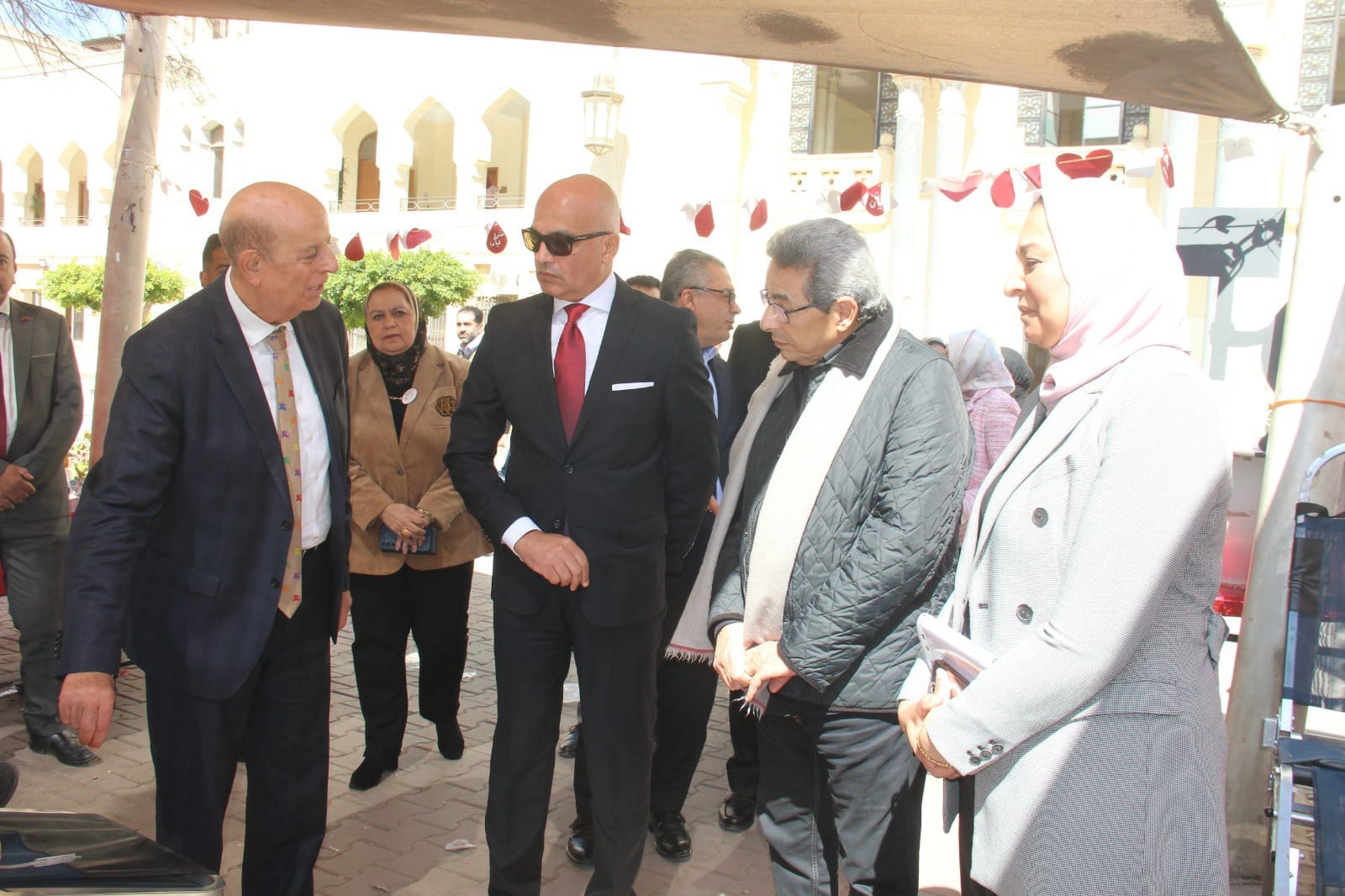 |
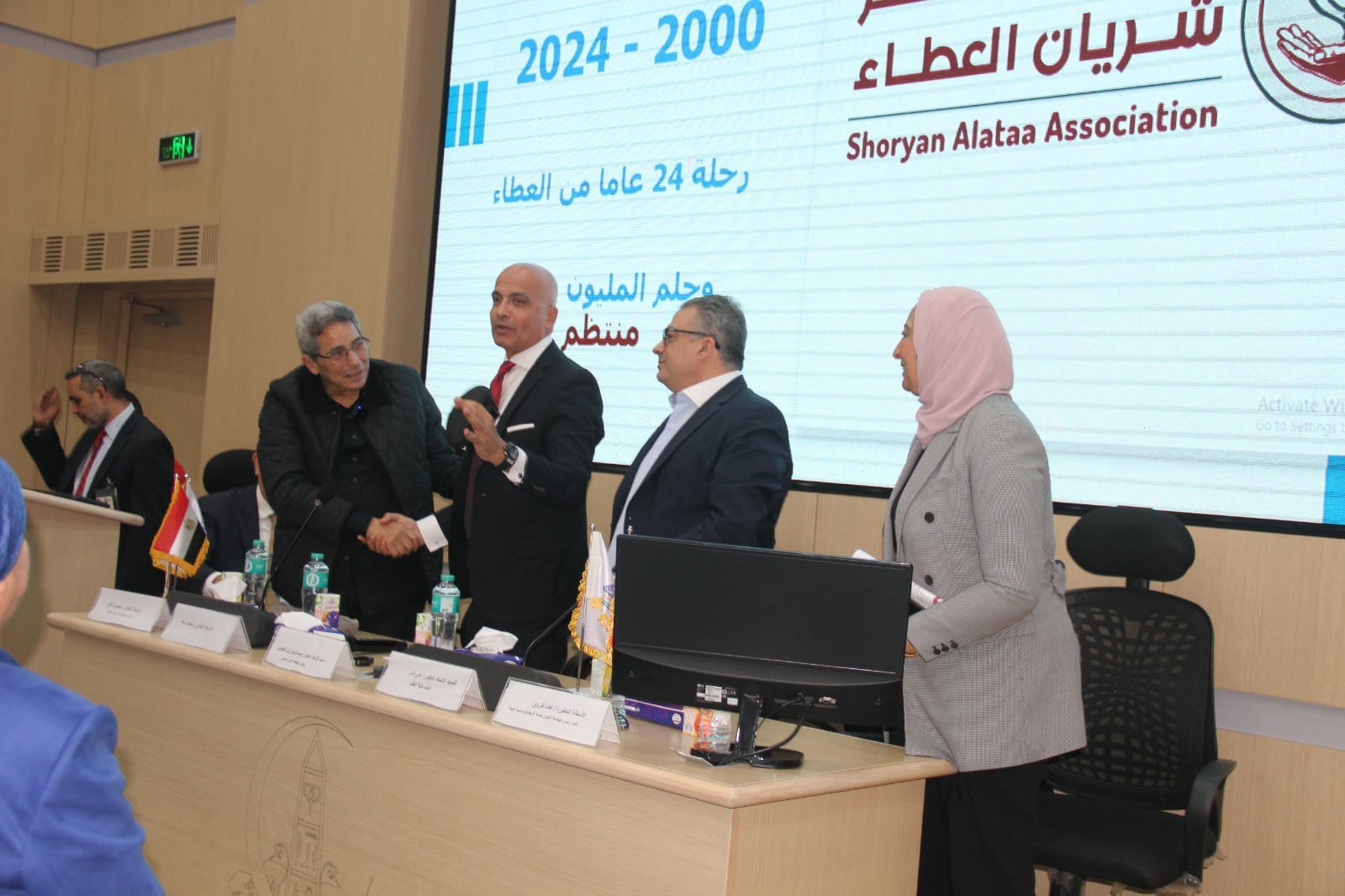 |
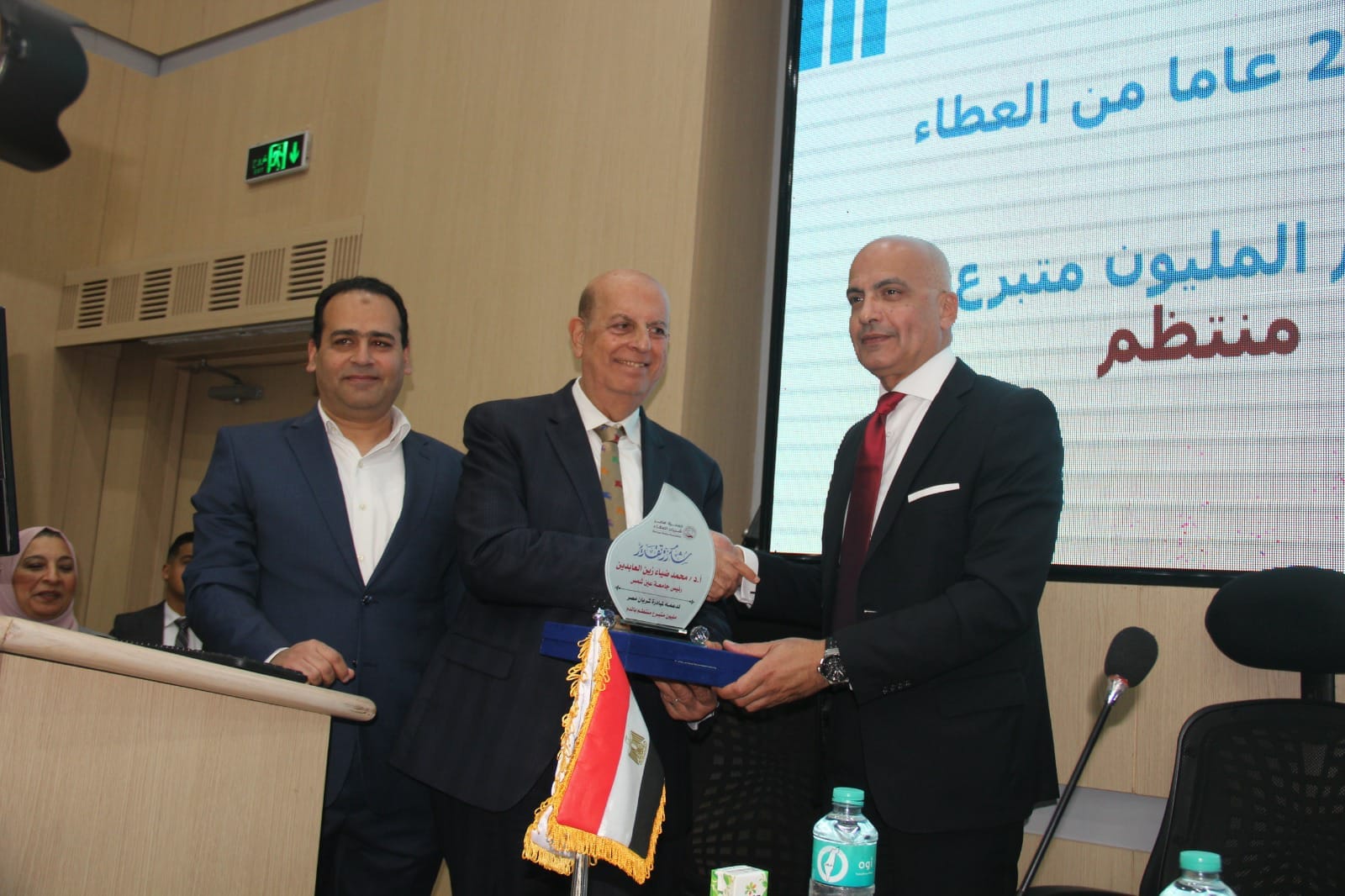 |
||
During his opening speech, Prof. Mohamed Diaa Zain El-Abedeen emphasized the importance of spreading the culture of blood donation among all segments of society, especially young people, and encouraging giving because of its great return for the donor and the patient. If charity and giving with money has a great reward with God, and is multiplied many times over, then charity with blood is of a higher status and greater reward. Because it is the cause of life, and it is a part of the human being, and the human being is more precious than money, and it is as if the blood donor provides a part of his physical being to his brother out of love and selflessness, and by it revives the soul about which God Almighty said: {And whoever saves a life, it is as if he had saved the life of all mankind}
Prof. Ghada Farouk confirmed the importance of adopting a culture of blood donation on a regular basis and not just for a specific event, praised the honorable image shown by Egyptian youth in serious events that required blood donation, such as events in Palestine and road accidents, and stressed the presence of many patients and children in constant need of blood.
She also explained that blood donation represents a closed circle. Today you donate blood and tomorrow you may need it. Every person is vulnerable in different ways to needing blood. She stressed that the only source of blood is to obtain it from a donor because it cannot be created or manufactured.
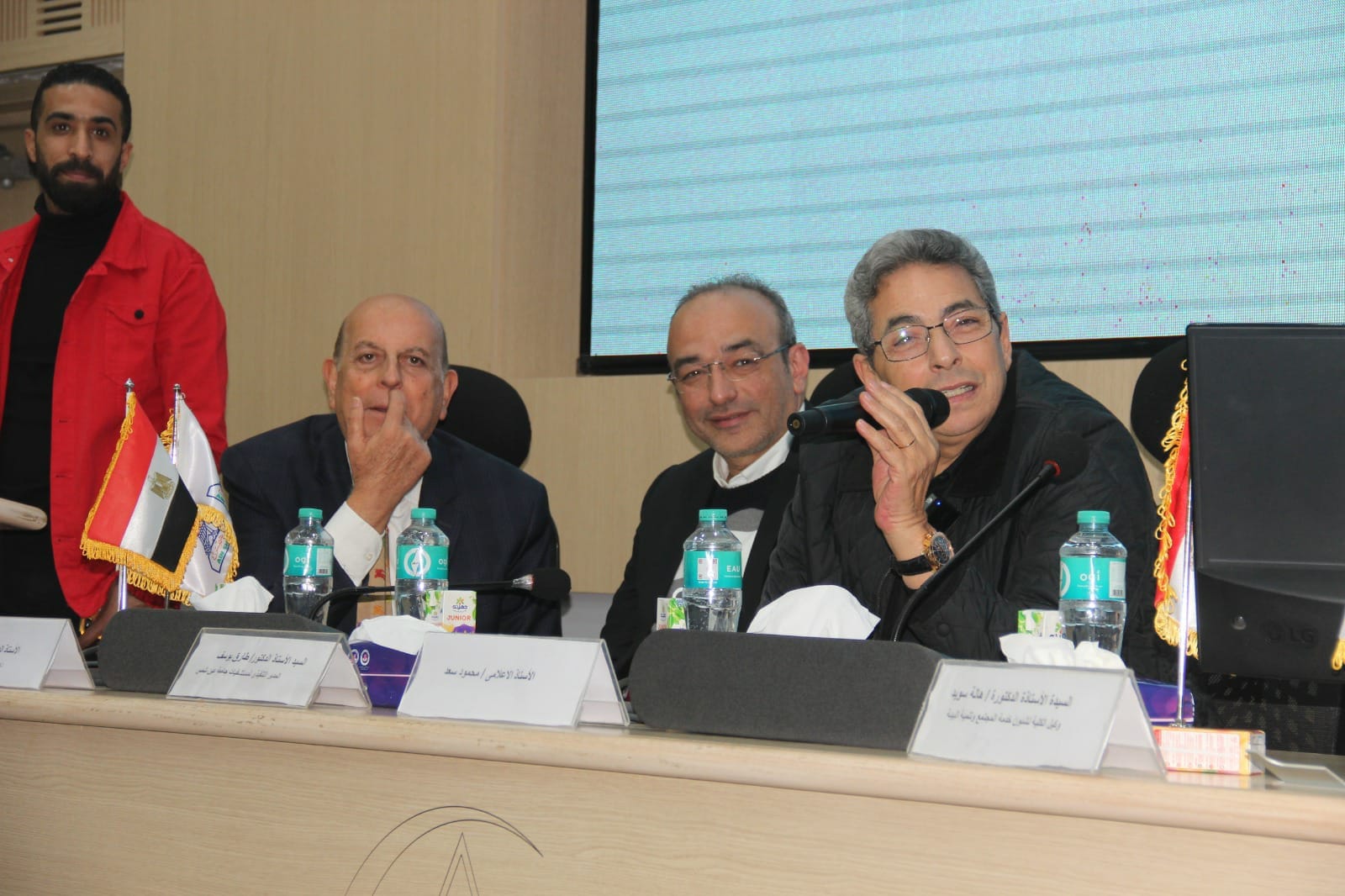 |
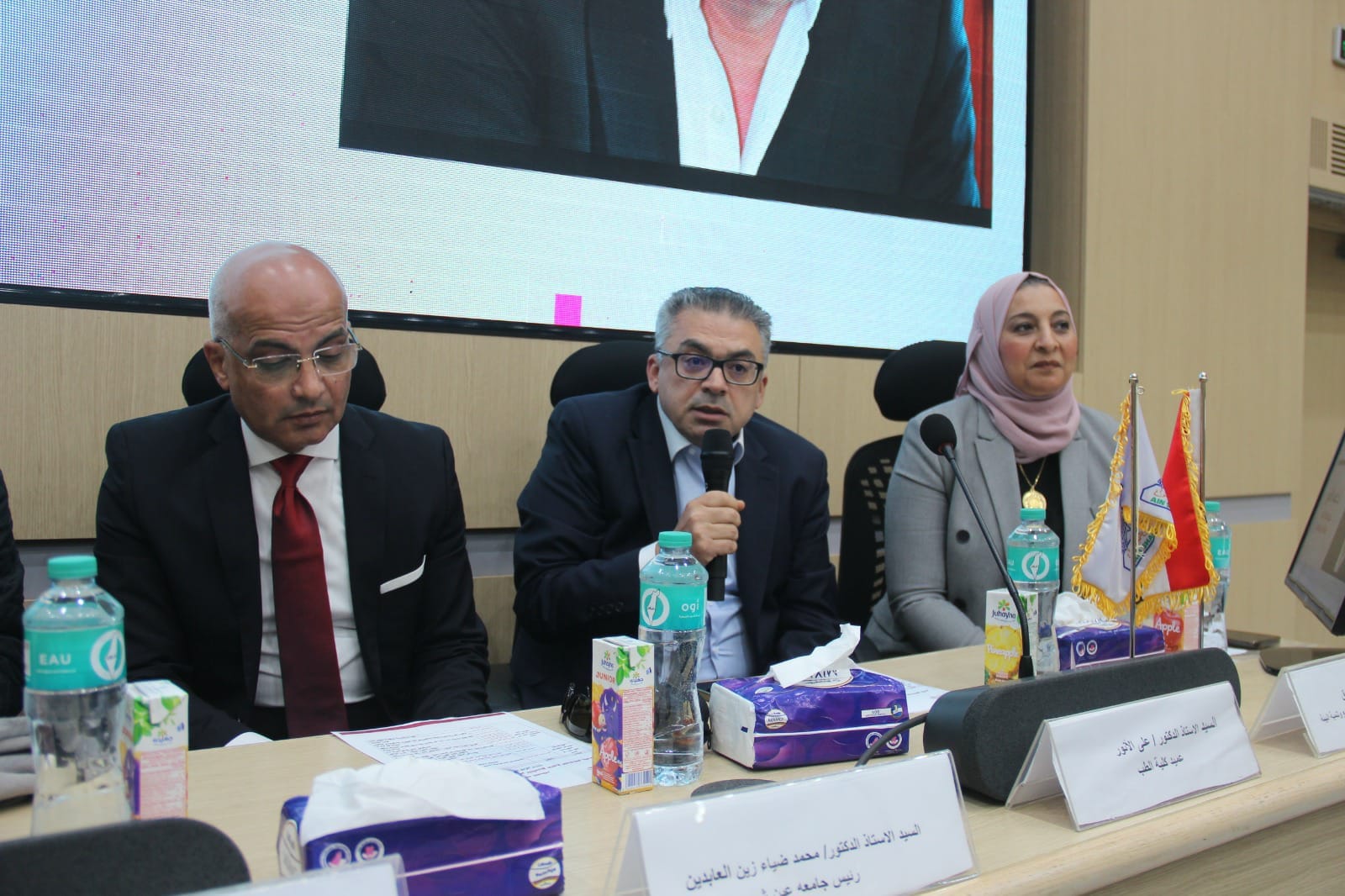 |
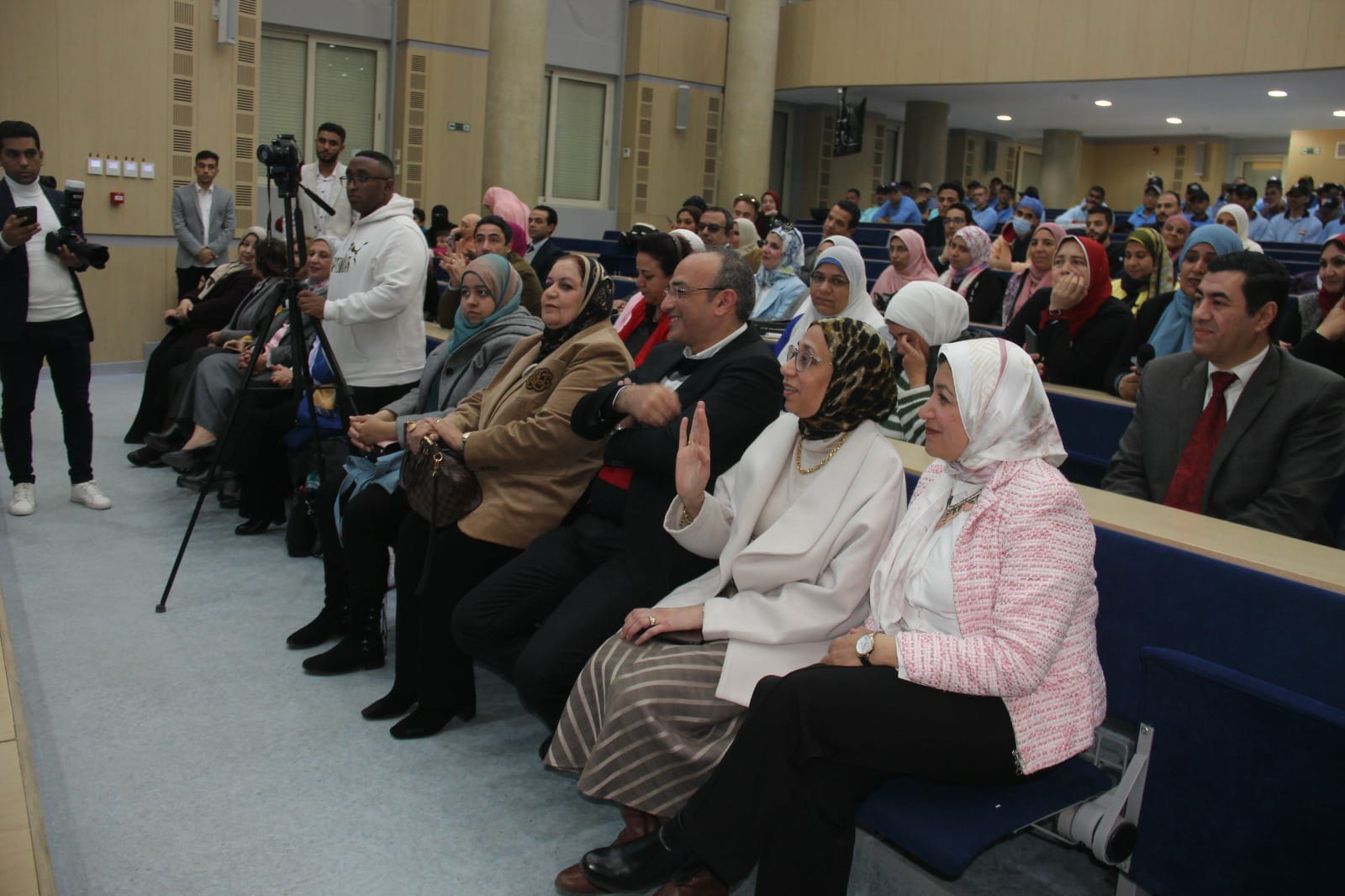 |
||
Prof. Ali Al-Anwar explained the importance of donating blood to preserve the life of every patient, especially children with Mediterranean anemia, pointing out a number of health benefits that accrue to the blood donor, the most important of which are: contributing to stimulating the bone marrow to renew blood cells and contributing to maintaining liver health, by maintaining normal iron levels in the blood and reducing the possibility of heart clots, in addition to reducing oxidation factors and inflammation triggers.
During the meeting, the distinguished journalist Mahmoud Saad presented messages to motivate young people not only by contributing as blood donors, but also by the necessity of being ambassadors in their communities to convey the culture of regular blood volunteering, and he emphasized the importance of instilling that culture among children and all segments of society.
He also explained the importance of spreading health awareness about the importance of donating blood and that it does not represent any danger to the donor at all, but rather stimulates blood circulation and stimulates the marrow to form blood.
Journalist Mahmoud Saad also announced his intention to host a number of children suffering from Mediterranean anemia to motivate his followers and educate them about the importance of regular blood donation.
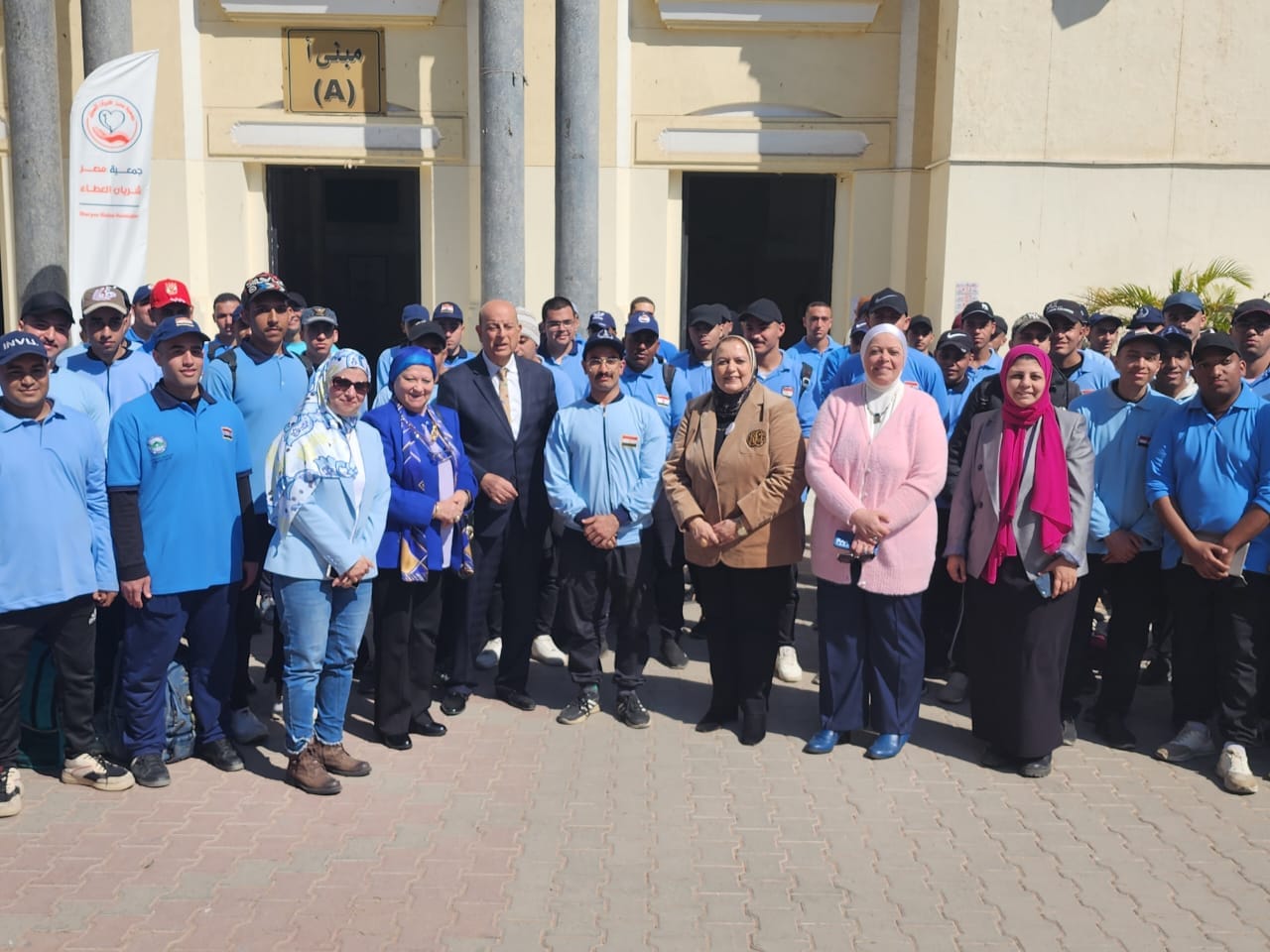 |
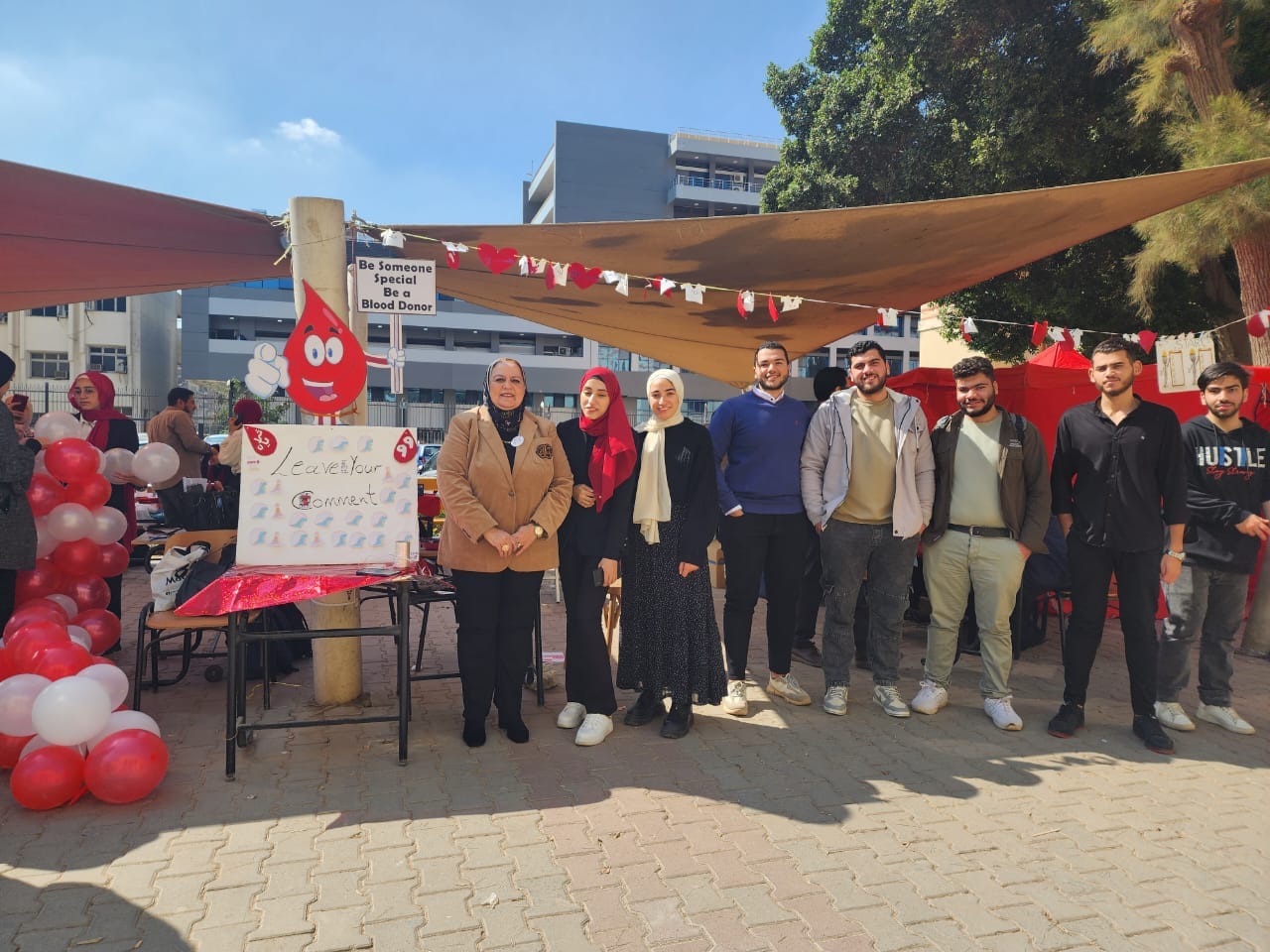 |
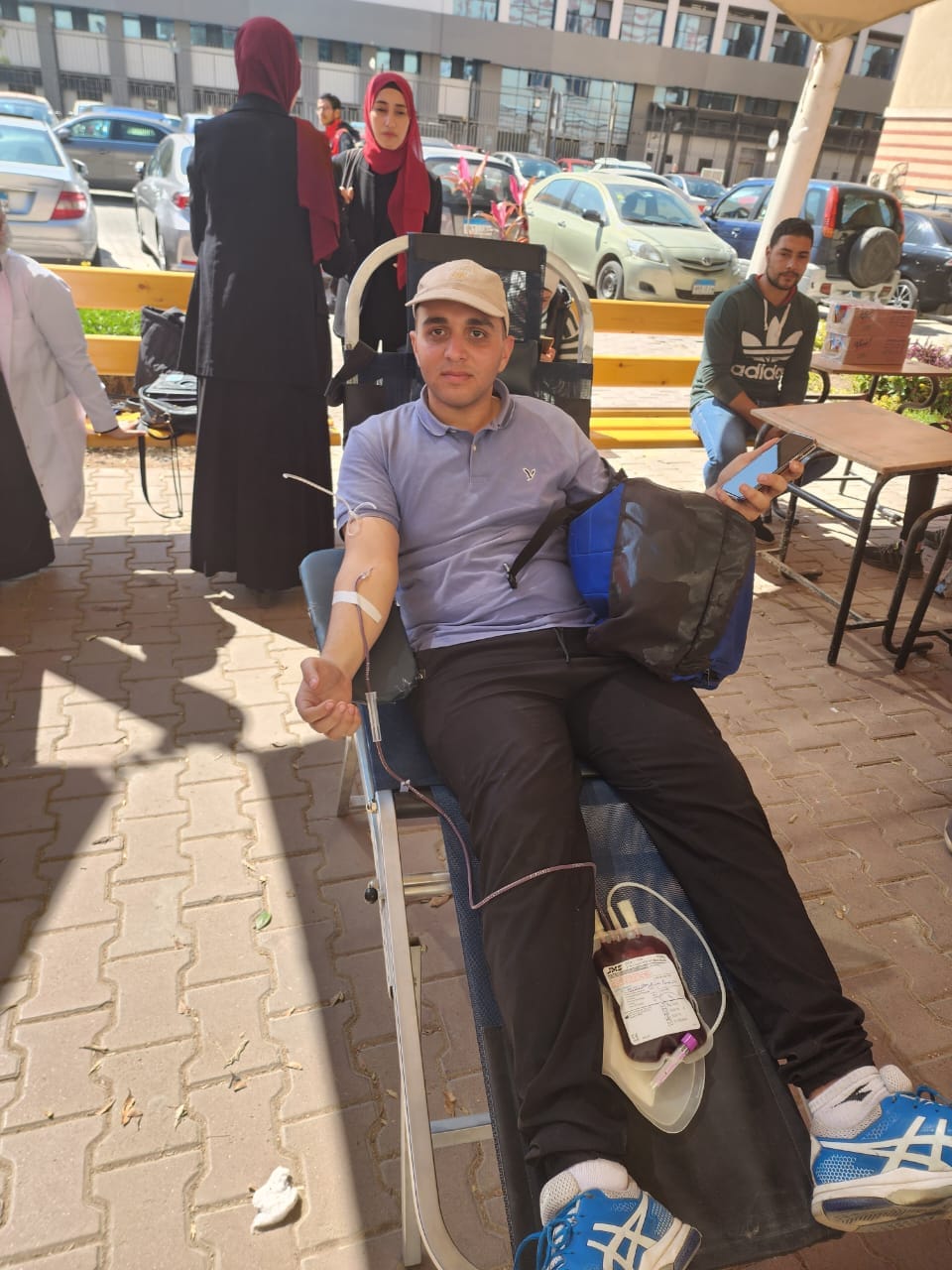 |
||
During his speech, Prof. Mohsen Al-Alfy, Professor of Hematology and Pediatric Oncology at the Faculty of Medicine, at Ain Shams University and Chairman of the Board of Directors of the Misr Sharyan Al-Ata Association, said that the goal of all the association’s activities is to reach one million regular donors annually to provide safe blood for every patient, and that the Misr Sharyan Al-Ataa Association has been working for 25 years to provide safe blood for every patient. He explained the importance of the donor being regular in donating blood
He also announced the launch of an application called the association, “Egypt, the Lifeline of Giving,” through which any volunteer can know the nearest place to donate blood and how to become a regular donor for a case of Mediterranean anemia patients.
At the conclusion of the meeting, a number of regular donors were honored through the Misr Sharyan al-Ataa Association.


.svg)




